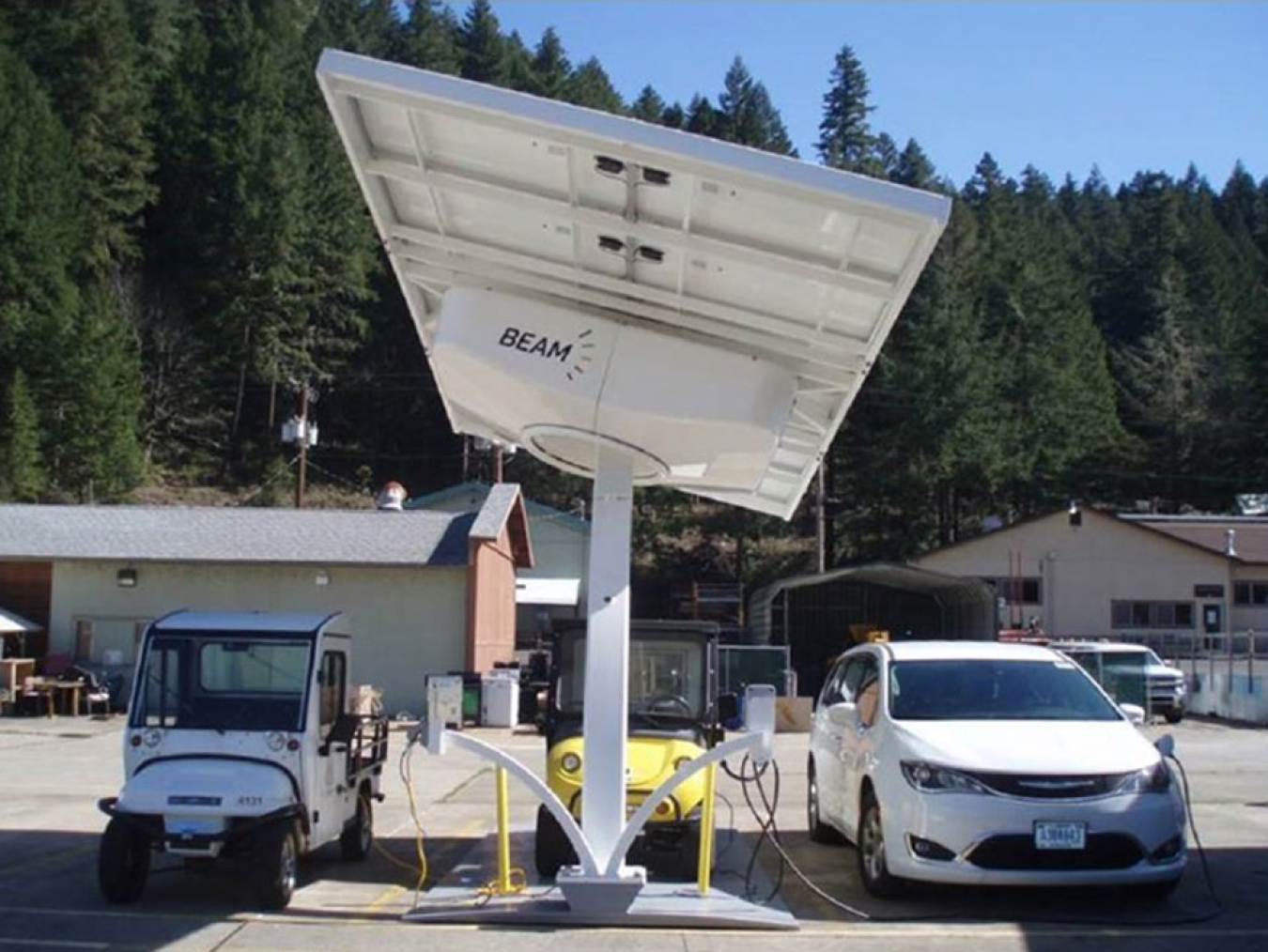The United States Department of Agriculture Forest Service successfully deployed a solar-powered EV charging station at the Wolf Creek Job Corps Civilian Conservation Center to serve its five-vehicle fleet. The Job Corps Center is a residential campus situated in the remote Umpqua National Forest in Oregon's Cascade Range, which provides free education and job training programs for young adults. Due to the high financial cost of installing electric infrastructure in remote areas with limited access to the grid, the Forest Service chose to purchase a charging system that requires no grid connection.

An off-grid solar-powered EV charging station recharges United States Forest Service vehicles.
The solar-powered charger is a standalone device that was installed with no disruption to the environment including no trenching, permitting, construction, and electrical work or utility hookups. Better yet, it is 100% renewably powered by the sun through its overhead photovoltaic (PV) canopy. The components of the EV charger arrived on a single flatbed trailer for the contractor's crew to assemble on-site, making for a quick and easy installation process. Additionally, because the solar-powered EV charger is transportable, the solar charging station can be redeployed within the national network of Job Corps Centers to support EV charging during times of need.
The charging station's base provides a platform that vehicles can park on, while the cords can also reach up to five adjacent parking spaces. Currently, the charger supports a Ford Fusion plug-in hybrid electric vehicle (PHEV), a Chrysler Pacifica PHEV, and two neighborhood electric vehicles. The site also plans to support a Ford F-150 Lightning with the charging station. To enable real-time connectivity with an office near the parking area, the Forest Service plans to install a wi-fi range extender to transmit information about the status of charging sessions.
Project Highlights
- The Forest Service Wolf Creek Corps Civilian Conservation Center, a remote site with limited access to the grid, is using a solar-powered charging station to recharge its plug-in electric hybrid and battery electric vehicles.
- This example of on-site carbon pollution-free electricity (CFE) helps the Forest Service meet the Federal Sustainability requirements in Executive Order 14057 and reduces the federal fleet's carbon emissions.
Key Benefits
- The standalone charging station requires no connection to the grid, an advantage for a remote site like Wolf Creek.
- The relative ease of installation reduced labor costs, which can be particularly high for remote areas.
- The charging station is transportable, so it can be redeployed to another site during times of need, if necessary.
Impacts
- Using on-site solar energy to charge its vehicles enables Wolf Creek to save on fuel costs.
- Using electric vehicles improves the air quality at Wolf Creek and reduces carbon emissions.

